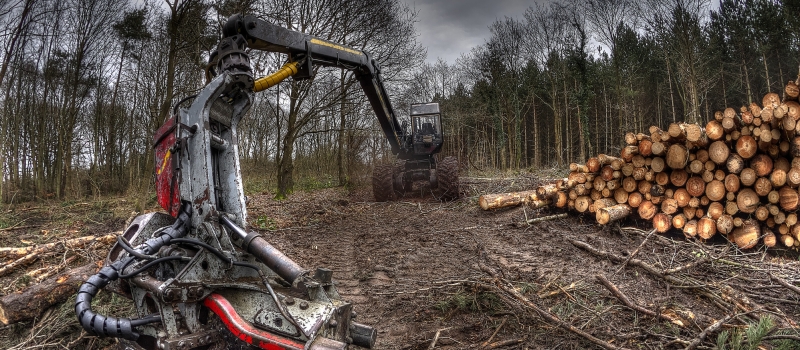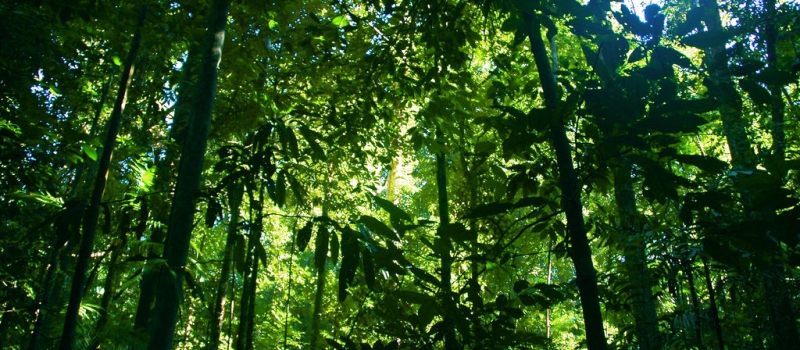
The extreme ways that human activities are affecting the climate and other natural systems are becoming starkly evident.
Some of the places where one can most visibly see the impacts of human induced climate change are in mountain regions. Rapidly melting glaciers, reduction in mountain snow and extreme changes in weather patterns are recorded in mountain regions worldwide.However the way that mountain deforestation and mountain region ecosystem degradation is impacting upon climate change is often overlooked.
Generally when climate change is being discussed, the emphasis is upon the negative impacts that climate change is having upon ecosystems, rather than emphasizing the impacts that degraded forests and mountain ecosystems are having upon climate.
Climatologists and microbiologists have demonstrated, that the relationship between plants, forests, biodiversity and global atmospherics are not simply a one-way affair. It is well known that glaciers in mountain regions are an essential element in climate regulation worldwide. Yet it is less understood, how much the mixed forests of these regions affect the on-going replenishment of these snows and glaciers and therefore what a pivotal role they play in atmospheric and climatic regulation. Fortunately there is a growing awareness and recognition of this interdependent relationship.
For greater effectiveness in dealing with and addressing climate change, the ecological restoration side of the equation needs to be placed in the forefront. There is presently a lot of focus directed towards stopping or reducing activity that harmfully impacts upon the climate. However ecological restoration needs to be allotted equal importance. Considering the important role that mountain forests play in naturally regulating climate, protecting, conserving and restoring the crucial biodiversity and ecosystems of these regions worldwide should be a central part of mitigating climate change. The impacts of this would yield more positive and restorative affects than simply focussing upon neutralising negative impacts.
Reforestation for the purpose of creating carbon sinks is considered to be a valuable way of limiting carbon dioxide in the atmosphere. However there are multiple other ways in which mixed forests impact upon climate and not all of them are immediately apparent.

“In addition to impacts on the global carbon cycle, forests can alter the composition of the atmosphere through the emission of gas-phase and aerosol species (biogeochemical effects) and can modify land-surface properties (biophysical effects).”
Forests play a major role in Earth’s carbon cycle. Trees convert atmospheric carbon from CO2 into organic woody biomass as part of a respiratory process called photosynthesis. Trees then store the carbon until the woody biomass is destroyed. This carbon storage is called sequestration. When forests are cut down, not only does photosynthesis– and thus carbon absorption– cease, but also the carbon stored in the wood of the trees is released into the atmosphere as CO2 if the wood is burned or decays.
Microbiologists have also demonstrated that large quantities of ice nucleating bacteria (Pseudomonas Syringae), which naturally live on the surface of plants, may be essential in cloud formation, rain and snow and thus play an immensely crucial role in climate regulation.
“This work is truly multi-disciplinary, bridging the disciplines of ecology, microbiology, plant pathology and climatology”
Download: Brent Christner, LSU professor of biological sciences.pdf
Recent discoveries in the field of microbiology shine fresh light upon the role of biodiversity in climate and water regulation.
“Unearthing a role for biological Ice Nucleators in the precipitation cycle has implications for deciphering feedbacks between the biosphere and climate”
Download: Ubiquity of Biological Ice Nucleators in Snowfall, Brent Christner et al, 2008.pdf
This research is another indicator that in order to truly address human induced climatic instability, we need to call upon the
ingenious services that healthy functioning ecosystems provide.
We need to acknowledge the necessity of these ecosystems and where they have been seriously depleted, we need to work to restore and conserve them as fast as possible.
“Forests are not only a critical part of the climate solution – they hold multiple benefits for all members of society,” (UN Secretary-General Ban Ki-moon, Climate Summit 2014)
This is no longer something to be set aside while we focus on further research, new technology or war. This is also not an issue to be adopted for fast profit schemes. The success of these mixed forest protection and restoration projects ultimately affect the lives and long-term well being of all humanity and all other species upon Earth.
Healthy mixed mountain forests provide many essential services that are irreplaceable. As part of the global climate change agenda, it would be a great oversight to neglect protecting, restoring and maintaining.
Forests are essential to our future. More than 1.6 billion people depend on them for food, water, fuel, medicines, traditional cultures and livelihoods. Forests also support up to 80% of terrestrial biodiversity and play a vital role in safeguarding the climate by naturally sequestering carbon. Yet, each year an average of 13 million hectares of forest disappear.
Download: UN Climate Summit 2014, New York Declaration on Forests.pdf
Even with this knowledge between 2006 and 2014 approximately another 104 million hectares of forest were felled, causing 1.6 billion tons of carbon dioxide a year to be released into the atmosphere.(IPCC)
“Most people assume that global warming is caused by burning oil and gas. But in fact between 25 and 30 percent of the greenhouse gases released into the atmosphere each year – 1.6 billion tonnes – is caused by deforestation.” (FAO 4 September 2006, Rome)
The fact that this has been allowed to continue by those with the powers to stop it is an act of criminal negligence. The consequences of marginalising or essentially disregarding this yet again are fatal for all life on Earth. Now that this knowledge is understood and has been readily available for many years all large-scale deforestation programs throughout the world, especially those targeting primal forests should be regarded as crimes against humanity, as they seriously threaten all our lives and those of future generations.
